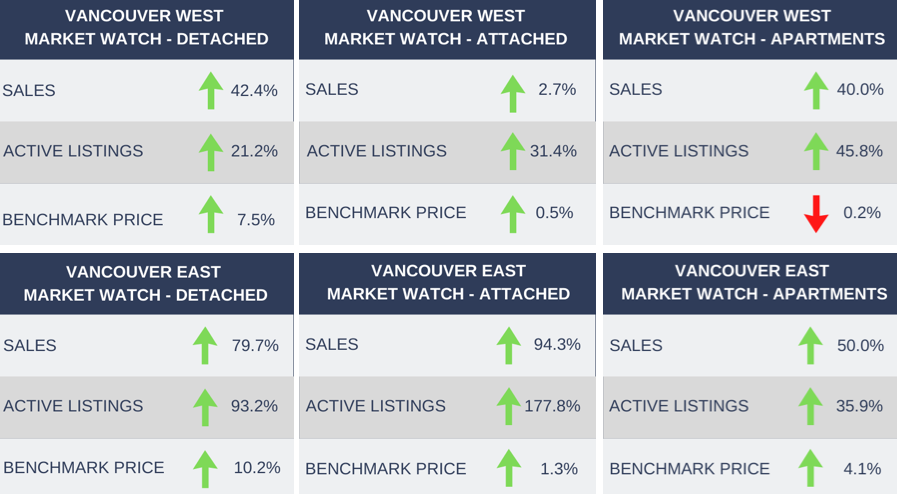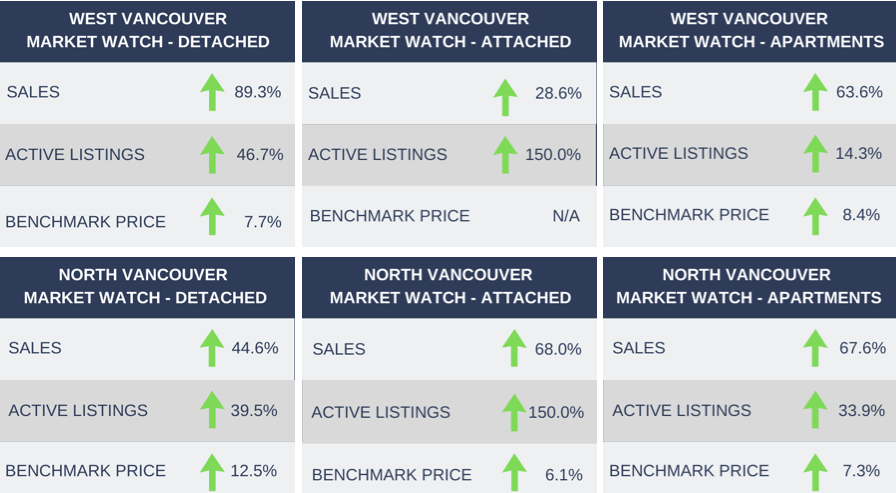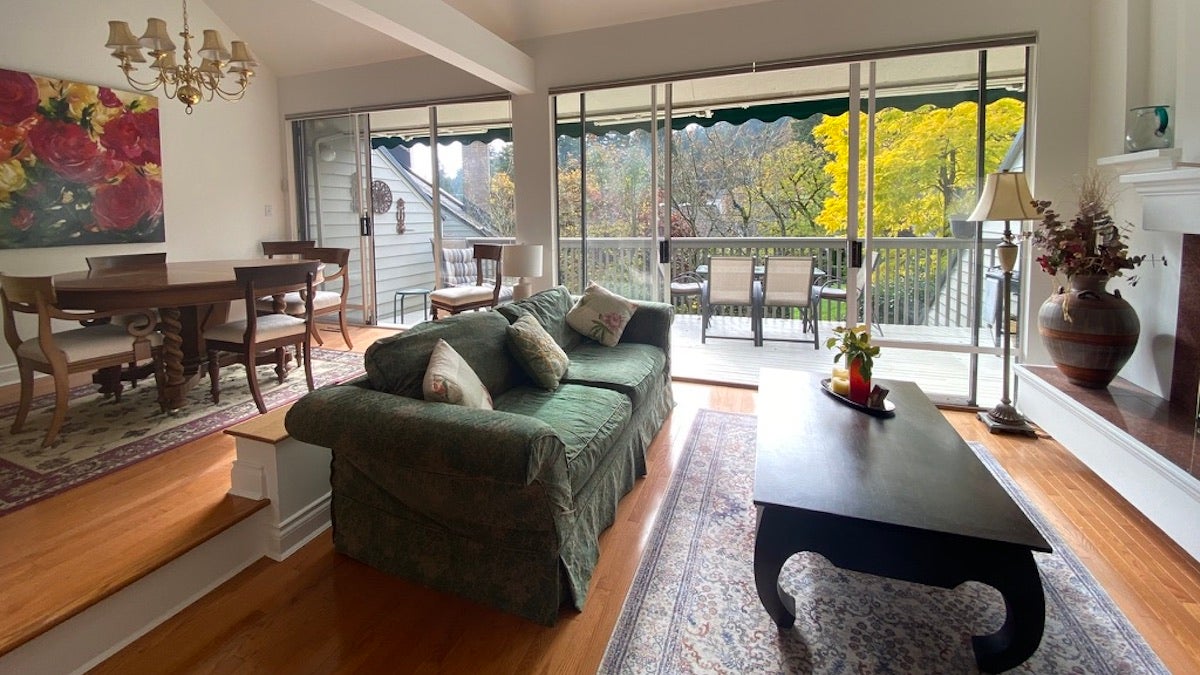IN THIS ISSUE:
• Thoughts about 2021 in real estate
• Questions to be answered by next December
• REBGV: the final month of 2020, statistically
• What Canadians want most, post-pandemic

That was the year that was, ending with the happy turn of a calendar page to welcome 2021.
As tough as 2020 was, from a real estate perspective there was something good to be found, and to be inherited by 2021. The most difficult year of a lifetime was also a year that was interesting, educational and potentially promising.
Interesting, because it produced a significant level of real estate activity.
Educational, because it redesigned the market in ways nobody could have imagined, with emergence of “working from home” dramatically changing lifestyles as more and
 more people needed homes that were at least part-time offices.
more people needed homes that were at least part-time offices. It will be an interesting ride.
With each new year come predictions and previews from “experts” on the economy or the market, or both. Here is a sample of what some had to say in December about 2021…
Bill Gates said on CNN’s State of the Union:
“By summer we’ll be way closer to normal than we are, but even through early 2022 unless we help other countries get rid of this disease and have a high vaccine rate, the risk of reintroduction will be there and the global economy will slow down, and that will have an impact on everybody. We can see now that in 12 to 18 months we have a chance, if we manage it well, to get back to normal.”
Brian Yu, deputy chief economist at Central 1 (an organization that works with more than 250 credit unions), authored a report that predicts the B.C. housing market will remain healthy:
“Economic growth is forecast to pick up steam in the second quarter of 2021 onwards as the vaccine drives higher investment spending and consumer spending is unleashed when social and travel restrictions are eased.”
Phil Soper, the CEO of Royal LePage, said this:
“There will be softer prices in bigger cities but they will return quickly, like by spring, because of supply shortages and immigration [the Canadian Government has announced immigration figures that dropped dramatically last year will be targeted for 400,000 in each of the next three years]. The leading indicators we analyze are pointing to a market that favours property sellers in the all-important spring of 2021.”
Bob Dugan, Central Mortgage and Housing’s chief economist, reiterated to Bloomberg News that CMHC’s May forecasts that national home prices will drop by 9 to 18 per cent this year hasn't changed:
“When I say I stand by our forecasts, it’s really with respect to what are the broad trends we expect moving forward.”
It’s worth noting that CMHC traditionally bases its research on what has happened.
Who will be right? The writing of 2021’s history has already begun
REBGV stats report: ’Twas a December to remember
Traditionally, December is the quietest month of the year for real estate, with good reason. Showings are down because there is so little daylight, the optimum condition for seeing a property, and because listings are down. Knowing this, homeowners typically prefer to wait until the new year to list their properties.If quiet is the norm for December, 2020 was a loud month for Metro Vancouver.
Sales were up 53.4 per cent over December 2019, according to figures released this week by the Real Estate Board of Greater Vancouver. The total of 3,093 homes sold was 57.7 per cent above the 10-year average for December!
Detached home sales jumped by a whopping 71.3 per cent. Attached home sales were up by 40 per cent. Apartment sales increased by 62.9 per cent. Those totals created a sales-to-active listings ratio of 36.2 per cent, almost twice the benchmark that drives home prices up, over an extended period.
In its monthly release, the REBGV stated:
“When the pandemic began in March, the housing market came to a near standstill…[but] shelter needs don’t go away in times of crisis, they intensify. The real estate
 community worked closely with regulatory bodies and public health officials in the spring to ensure appropriate precautions and protocols were implemented…[to] help residents safely meet their housing needs.”
community worked closely with regulatory bodies and public health officials in the spring to ensure appropriate precautions and protocols were implemented…[to] help residents safely meet their housing needs.”That jump in the inventory was understandably responsible for increased activity.
The REBGV analysis explained:
“Shifting housing needs and low interest rates were key drivers of this activity in 2020. Looking ahead, the supply of homes for sale will be a critical factor in determining home price trends in 2021.”
If that happens, busy is going to be the buzzword for the real estate market.

Questions for new normal coming with 'this' new year
Real estate questions to be answered by the real estate market in 2021:• Does WFH mean more employees will move further from the downtown office?
• How will that affect home prices at both ends, downtown and in the suburbs?
• Is the current demand for recreational property going to continue?
• Are open houses going to be even more selective, both for the home owner and the potential buyer?
• Will more homeowners increase the values of their homes by doing more improvements if that’s where they’re spending most of their time?


— Brian and Char Fox, Burnaby

What Canadians want most post-pandemic
This isn’t necessarily applicable to real estate, but the Angus Reid Institute polled Canadians to get a sense of what they think post-pandemic life will be like. Before reading on, visualize the three things you’re most looking forward to this year?
Before reading on, visualize the three things you’re most looking forward to this year?



Real Estate Monthly Statistics
The following statistics for West Vancouver, North Vancouver, Vancouver West and Vancouver East
compare December 2020 to December 2019 (note: sales refers to number of sales, not to sale prices).

Benchmark Price: Estimated sale price of a benchmark property.
Benchmarks represent a typical property within each market.
To see more information on local stats, please click here.

17-4957 Marine Drive, West Vancouver
• Great value in Caulfeild Cove
• 2,305 square feet • Special home, special place


Virtual events to enjoy in January
Tourism Vancouver
Virtually Vancouver, and more
www.tourismvancouver.com
West Vancouver United Church
Sunday service 10 a.m. (virtual)
wvuc.bc.ca/worship/
Vancouver Aquarium Live Cams
Otters, Penguins, Jelly Fish
https://www.vanaqua.org/live-cams
Vancouver Art Gallery
Art Connects — a series of online gatherings that encourage dialogue and connection in the era of physical distancing.
http://www.vanartgallery.bc.ca/exhibitions/art-connects
Every Tuesday and Friday, the Gallery will stream live and interactive conversations into your homes, featuring guests from local and international arts communities. Everyone is invited to join via Zoom.
Connect with Family and Friends
To connect with family and friends you can use Facebook, Messenger, FaceTime, Google Duo or Hangouts, Zoom, Instagram Video Chat, Snapchat Video and Chat, Skype, WhatsApp…the list is long. Check with family or friends and decide which is the best way to connect.
Tired of Cooking?
Many restaurants are offering take-out. Breaking Bread Now provides a list of restaurants in different areas with take-out meals breakingbreadnow.com/.
On Facebook there is a group called Support Local Business which supports local restaurants and businesses and gives them and others the opportunity to spread the word. Maybe your area has a similar Facebook group: www.facebook.com/groups.
Need some culture or learning in your life?
Go to a virtual museum — you’ll find a lot of them through Google: https://artsandculture.google.com
And for Canadian museums: http://www.virtualmuseum.ca/virtual-exhibits/type/virtual-exhibits/
Go to a virtual opera: https://www.metopera.org/
You can even take a virtual tour of The Louvre in Paris: www.louvre.fr/en/visites-en-ligne#tabs
Visit the Science Centre: www.scienceworld.ca/
Nature web cams can be fun to watch. explore.org/livecams
Search for lots of free learning programs for kids and adults online.
Visit your Library for virtual programming
westvanlibrary.ca/
www.nvcl.ca/
nvdpl.ca/
www.vpl.ca/digitallibrary
Need some exercise?
Go for a walk and get some fresh air if you’re healthy and following physical distancing.
Here is a link to some free exercise programs posted on CBC: www.cbc.ca/life/wellness/these-are-the-free-no-equipment-online-fitness-classes-you-need-right-now-1.5500751
Many exercise, yoga or meditation videos are available on YouTube.



